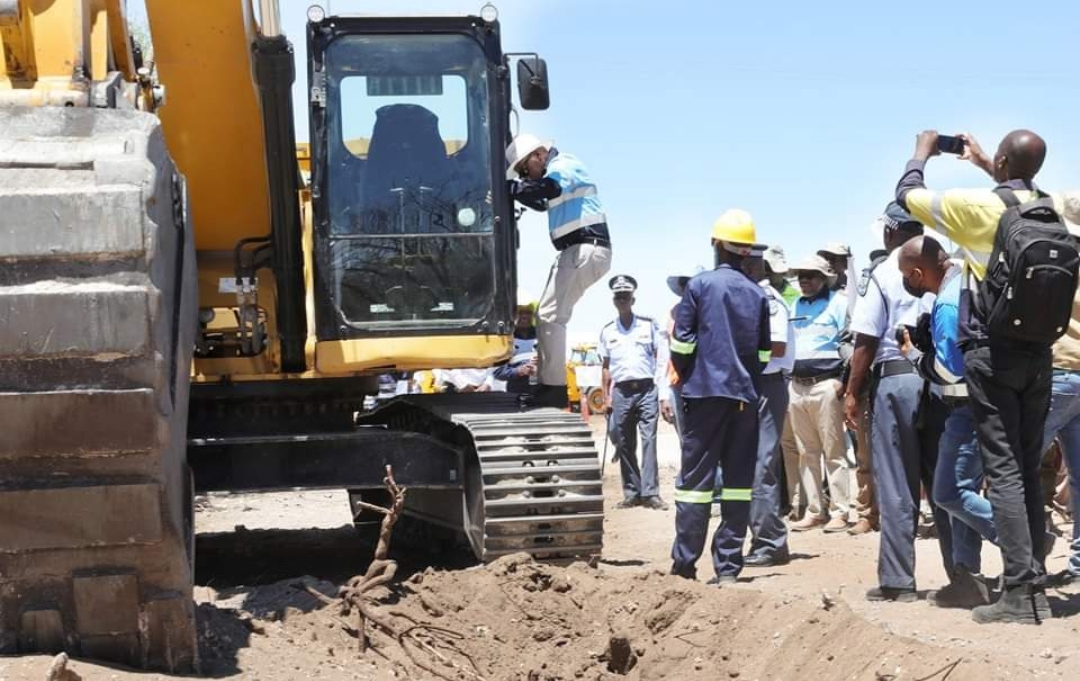The new government has made the decisive move to halt the construction of 28 police stations nationwide, citing budgetary constraints as the primary reason. The decision, revealed in a leaked document from the Ministry of Defence and Security last night, marks a significant policy shift from the previous administration’s ambitious plans to improve policing infrastructure across Botswana.
Masisi Administration’s Vision Interrupted
In the lead-up to the elections, the Mokgweetsi Masisi administration embarked on a highly publicized national groundbreaking campaign for the planned police stations. The initiative was framed as a cornerstone of efforts to enhance the Botswana Police Service’s efficiency, strengthen its mandate, and ensure more accessible and high-quality policing services for citizens.
However, the new government’s swift decision to halt construction has raised questions about the feasibility of the project from the outset and the state of public finances.
The Leaked Document
The document, reportedly authored by the Permanent Secretary of the Ministry of Defence and Security, confirms the suspension of the project. It states:
“Due to prevailing budgetary constraints, it is no longer feasible to proceed with the construction of the 28 police stations as planned. Alternative measures to address policing needs will be explored.”
The revelation has ignited debates over whether the initial project was grounded in fiscal realism or primarily a political strategy to bolster electoral support.
Implications for Policing Services
The suspension of the project is likely to have far-reaching consequences for policing services, particularly in underserved areas where the new stations were expected to improve response times and community safety.
Security experts have expressed concern that the halt could strain existing police infrastructure, potentially impacting the Botswana Police Service’s ability to meet growing demands for public safety. Communities that were promised new facilities may also feel neglected, exacerbating trust issues between the public and the government.
Mixed Public Reaction
The announcement has sparked mixed reactions among citizens and stakeholders. Some have criticized the Masisi administration for initiating a project they claim was poorly planned and not financially sustainable. Others, however, have urged the new government to consider alternative solutions to improve policing without overburdening the national budget.
One political analyst noted:
“The decision to halt these projects is pragmatic given the fiscal challenges, but it also raises questions about the previous administration’s priorities. Was this project a genuine attempt to improve policing, or was it political posturing?”
What’s Next?
The Ministry of Defence and Security has hinted at exploring alternative measures to address policing needs, though no specifics have been provided. Options may include reallocating existing resources, refurbishing existing police stations, or seeking international partnerships to fund future infrastructure development.
In the meantime, the new government’s commitment to ensuring safety and security for all citizens will undoubtedly be under scrutiny.
A Call for Transparency
As the dust settles on this controversial decision, many are calling for greater transparency in how national development projects are planned and funded. Citizens and opposition parties alike have urged the government to provide a detailed explanation of the financial challenges and a clear roadmap for addressing the country’s pressing policing needs.
This decision serves as a reminder of the delicate balance between ambition and fiscal responsibility in governance—a challenge the new administration must navigate carefully.










